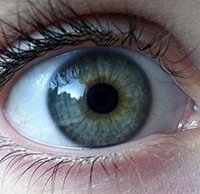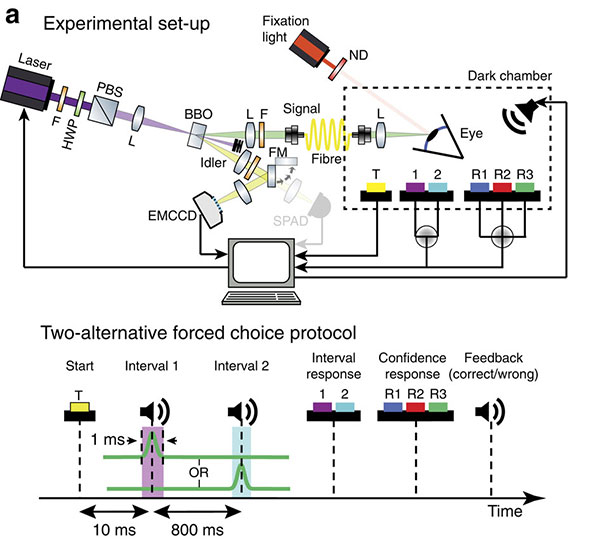Quantum vision: Study shows that the human eye is capable of detecting a single photon of light
posted Tuesday, July 26, 2016 at 2:30 PM EST

If you do much night photography, you've likely cursed your eyes for not being able to see better in the dark. It turns out that you've been too hard on your retinas. Scientists at Rockefeller University have conducted a study which has determined with statistical significance that the human eye can actually detect a single photon fired at the retina.
As PetaPixel points out, this is an accomplishment beyond the capabilities of even the highly-sensitive and specialized Canon ME20F-SH which can shoot at ISO 4,000,000. Note that while you won't be taking any photos with it, there is specialized equipment capable of detecting a single photon, such as the Andor iXon3 897.
Despite besting the sensitivity levels of consumer cameras, our eyes aren't perfect at detecting a photon. Participants were only able to detect the photon 51.6% of the time, although they were accurate 60% of the time when they felt confident.
Part of the difficulty in finding the limits of human vision is that it proved difficult to reliably fire only one photon at a time. Quantum physicist and senior author of the study Alipasha Vaziri and his team utilized spontaneous parametric down-conversion (SPDC) to ensure that a single photon was fired. The three participants in the study were males in their 20s with excellent eyesight (one of the subjects was aided by contact lenses) and they were required to sit in a completely dark room for roughly 40 minutes before participating in the study.

While some animals (such as eagles) have evolved to have eyes capable of seeing a rodent from nearly three miles away and others (like chameleons) can see with a roughly 360-degree field of vision, it appears that human eyes evolved to be highly sensitive. Why? Vaziri speculates that the difference between being able to see when ambient light reaches roughly the level of a single photon -- like during the night at a time when there were no artificial lights -- could mean the difference between life and death. Not only that, but the study also showed that our eyes are more likely to accurately detect a photon of light within ten seconds of having previously detected one. Our eyes get a temporary boost in sensitivity, which is a very interesting result.
It's a fascinating study, so be sure to check out the full information here.
(Seen via Fstoppers, Los Angeles Times and PetaPixel. Index image captured by Flickr user Karen Roe and used under Creative Commons 2.0.)